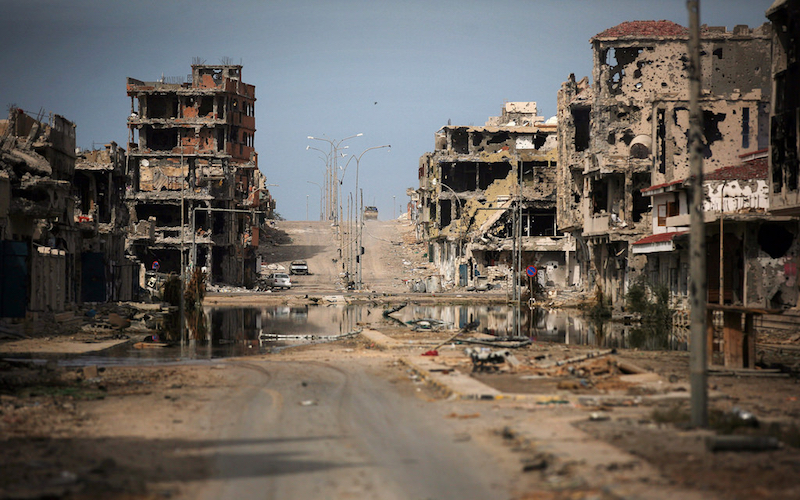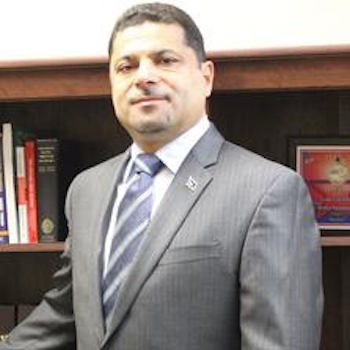
Libya’s New Menace: Madkhalism
As the attention of the West turned towards Syria, a new enemy has been strengthened in the sands of Libya. “Madkhali” may not yet evoke the same concern as “Wahhabi” or “Salafi,” but it represents a very clear danger in the struggle for long-term peace and stability in the country. Once again, outsiders might make the same mistakes that were made in Afghanistan, Iraq, and elsewhere in order to have a force to fight a common enemy, this time pro-democracy forces in Libya. Middle Eastern autocracies are actively funding various Islamic groups, encouraging the formation of new ones and arming others. As a result, the world risks allowing a quagmire to occur on the scale of Syria or Somalia.
In many ways, Madkhali beliefs are nothing new at all and represent much of the same reasoning as earlier Wahhabi/Salafi thought, and gets its name from Rabee al-Madkhali, the Saudi cleric who crystallized much of its teachings.
At its core, Madkhalism is an offshoot of Salafi thought, but with a few differences. Unlike certain other Salafi groups, Madkhali teachings are especially popular with more autocratic Islamic regimes around the world, as they combine the dogmatism of mainstream Salafi thought with an unwavering devotion to those in power. Specifically, the role of wali al-amr (literally one vested with authority) is considered inviolable, as a direct gift from God.
Needless to say, this made the teachings popular with the Saudi, Egyptian, and Qaddafi governments, while many in the West view the group as a cult. In fact, Madkhali sects in Libya were among the only Islamist groups to side with Qaddafi during the Libyan 2011 revolution. Today, their influence is growing and they are poised to become stronger than ever. However, a different warlord attempts to claim their support: Khalifa Haftar.
Khalifa Haftar is a prototype for the Arab strongman. His ability to flip allegiances has resulted in a great deal of power, but he has inescapable ties to human rights abuses, war crimes, and Vladimir Putin. Currently, he is attempting to garner support from the Madkhalis in Libya, pointing to himself as the rightful leader of the country, and leveraging everything from small military successes to his past ties to the Qaddafi regime. The ease with which he is able to tap into this ideology is particularly concerning, as it demonstrates the possibility of a Qaddafi 2.0 emerging in Libya.
To fully understand the psychology of Haftar’s desire to work with the Madkhali, one must look back to Nasser’s use of the Muslim Brotherhood in Egypt. After all, the Free Officers Movement was formed under the umbrella of the Muslim Brotherhood. Of course, once Nasser assumed power, he outlawed the Brotherhood. Haftar may well hope to do the same in Libya. Yet there is a gulf of difference between outlawing an unarmed political party and outlawing a militia group that has been armed to the teeth. While some short-sighted officials in Moscow, and in the Middle East, may see Haftar as a man who can guarantee stability and remove the threat of democracy, the truth is that Madkhalism is just another reason that Haftar must be opposed.
Even without the Haftar connection, the Madkhali represent a menacing group to be countered by the West. With growing confidence they are winning battles in Libya and if allowed to establish a base of existence, they could bring additional unrest within Europe. Supported by autocratic regimes throughout the Arab world, the Madkhali reject democratic governance. Already a significant number of Madkhali adherents live there, and whereas ISIL requires a period of time to radicalize its operatives in places like Brussels or Paris, the Madkhali would need no such preparation. Moreover, their complete rejection of the Western models of democracy means that Madkhalis who live in the west will never assimilate. Worst of all, the Madkhali have taken up arms and are advancing their influence at gun point. As pointed out in this piece by Frederic Wehrey, there is considerable uncertainty as the once passive Madkhali presence becomes armed and dangerous. Just like the covert support that resulted in the fragmentation of the mujahedeen of the 1980s in Afghanistan, short-sighted support of the Madkhali will create bigger problems in the future.
Already the Madkhali have built a substantial network across Libya, which makes them attractive as an ally to Haftar and other nebulous outside influences. Madkhali militias control much of Tripoli, and Madkhali imams control more mosques than any other group. Many of these imams were installed by force by the Mdkhali militias. In Misrata, Libya’s third largest city, Madkhali forces exert huge influence over the City Council. Additionally, the city acts as a base for the 604th Battalion, a powerful all-Madkhali unit that has shown no hesitation in fighting pro-democracy forces. Despite Madkhali attempts at discretion, their plan is clear and reinforces concerns that a concerted Madkhali presence in Libya is a nightmare scenario for the West.
Libyans and the West must counter the rise of the Madhkali. One thing is for sure, covert support for the Madkhalis will backfire. It is hard to maintain confidence in ideals like freedom and democracy if America continues to look away as its Middle Eastern allies continue to support and arm fringe groups such as the Madkhalis. Instead, supporting groups that have a long-term vision for Libya that includes democratic ideals should be a priority. After all, it is easier to enable those existing groups to stand up and oppose the Madkhali now than it is to build them completely from scratch to defeat Haftar or the Madkhali some years later.

